| Listing 1 - 8 of 8 |
Sort by
|
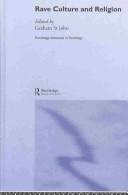
ISBN: 0415314496 Year: 2003 Publisher: London Routledge
Abstract | Keywords | Export | Availability | Bookmark
 Loading...
Loading...Choose an application
- Reference Manager
- EndNote
- RefWorks (Direct export to RefWorks)
Rave culture --- Religion and culture --- Youth --- Religious life --- Social life and customs --- techno --- spirituality --- rave culture --- dance --- new religious movement --- ecstacy --- neural tuning --- music --- ritual --- underground dance music --- gospel --- Baptist worship --- Gamelan --- counterculture --- New Age --- Ibiza --- Goa --- hedonism --- trance
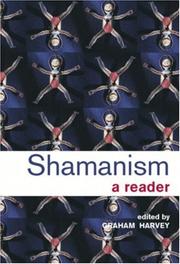
ISBN: 9780415253307 0415253292 0415253306 9780415253291 Year: 2003 Publisher: London Routledge
Abstract | Keywords | Export | Availability | Bookmark
 Loading...
Loading...Choose an application
- Reference Manager
- EndNote
- RefWorks (Direct export to RefWorks)
Shamanism. --- Chamanisme --- shamanism --- Siberia --- Aboriginal Australia --- Northern Europe --- South America --- western New Age --- rave culture --- popular mythology --- anthropology --- psychology --- musicology --- botany --- hallucinogens
Book
ISBN: 2863641204 9782863641200 Year: 2003 Publisher: Marseille : Parenthèses,
Abstract | Keywords | Export | Availability | Bookmark
 Loading...
Loading...Choose an application
- Reference Manager
- EndNote
- RefWorks (Direct export to RefWorks)
En 1949, André Ravéreau étudiant en architecture se rend à Ghardaïa où il découvre l'architecture mozabite du M'Zab. Conscient de l'apport de cette architecture de tradition dans la définition de la modernité architecturale, il se décide à retourner au M'Zab avec d'autres étudiants. Les relevés des principaux monuments et édifices civils le conduisent à engager la création d'ateliers régionaux d'architecture où les étudiants conviés ont pu s'imprégner trois mois durant des lieux avant même d'engager leur travail de projetation. En 1965, André Ravéreau est nommé architecte en chef des monuments historiques en Algérie, s'efforçant alors d'obtenir le classement de la vallée du M'Zab en 1970 avant de créer à Ghardaïa le premier atelier du ministère. En quelques années, la réputation de l'atelier dépasse les frontières et des étudiants de toutes origines viennent s'affronter à la leçon du désert, comme en écho des leçons du célèbre Construire avec le peuple d'Hassan Fathy. L'expérience de l'atelier du M'Zab constitue désormais une référence incontournable pour tous ceux qui essaient de concevoir une gestion du territoire plus respectueuse tout à la fois du contexte naturel et des cultures locales. C'est dans la discussion quotidienne avec les mozabites qu'André Ravéreau forge la dynamique de son projet.Mode de vie, comme mode de construction font l'objet d'observations et de descriptions attentives que les étudiants sont invités à transcrire dans le dessin et à pratiquer sur les chantiers. C'est à la découverte de cette expérience inaugurale qu'invite ce livre en resituant l'histoire de ce lieu de rencontre entre tradition et modernité où l'architecture est vécue, non plus comme acte artistique monopole du seul créateur, mais comme fait de société. Une large part est faite aux témoignages des élèves et des compagnons de route qui participèrent à cette aventure pour révéler, tout autant que les œuvres elles-mêmes, cette écriture patiente et cultivée du projet qui restitue au constructeur et à l'usager la propriété de son geste et l'authenticité de sa parole.
Architecture, French --- Architecture française --- Architecture vernaculaire --- Planification urbaine --- Architecture --- History --- Arid regions --- Fathy, Hassan --- Ravereau, André --- Ravéreau, André, --- Criticism and interpretation --- Alger --- Algérie --- Ghardaia --- 72 RAVEREAU, ANDRE --- 72.036 <65> --- 711.4 <65> --- 72.031.4 --- Architectuur. Bouwkunst--RAVEREAU, ANDRE --- Moderne bouwkunst. Architectuur van de 20e eeuw--Algerië --- Gemeentelijke planologie. Stadsplanning. Stedenbouw--Algerië --- Architectuur. Bouwkunst--?.031.4 --- 72.031.4 Architectuur. Bouwkunst--?.031.4 --- 711.4 <65> Gemeentelijke planologie. Stadsplanning. Stedenbouw--Algerië --- 72.036 <65> Moderne bouwkunst. Architectuur van de 20e eeuw--Algerië --- 72 RAVEREAU, ANDRE Architectuur. Bouwkunst--RAVEREAU, ANDRE --- Architecture française --- Architecture islamique --- Ravéreau, André --- Critique et interprétation --- Architecture, Western (Western countries) --- Building design --- Buildings --- Construction --- Western architecture (Western countries) --- Art --- Building --- French architecture --- Design and construction --- Ravéreau, A. --- Criticism and interpretation. --- Critique et interprétation. --- Critique et interprétation. --- Architecture, Primitive --- Architecture, French - Algeria --- Architecture - Algeria - History - 20th century --- Architecture - Arid regions - Africa, North --- Ravéreau, André, - 1919- - Exhibitions --- Ravéreau, André, - 1919- - Criticism and interpretation --- Ravéreau, André --- Ravéreau, André, - 1919 --- -Ravéreau, André, - 1919 --- -Alger
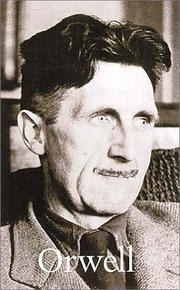
ISBN: 1904341330 9781904341338 Year: 2003 Publisher: London Haus
Abstract | Keywords | Export | Availability | Bookmark
 Loading...
Loading...Choose an application
- Reference Manager
- EndNote
- RefWorks (Direct export to RefWorks)
Orwell, George --- Authors, English --- Orwell, George, --- Orwell, George. --- Orwell, Georg --- Āravēla, Jorja --- Blair, Eric Arthur --- Oruel, G., --- Oravēla, Jyorja --- Orvel, Džordž --- Orṿel, G'org' --- Oruell, Dzhordzh --- Oruel, Dzhordzh --- Ārvel, Jārji --- Ōweru, Jōji --- Ūrvil, Jurj --- Jārj Ārvil --- אורוול, גורג, --- אורוול, ג׳ורג׳ --- אורול, ג׳ורג׳, --- اورويل، جورج --- 奥威尔乔治, --- آرول، جارج،
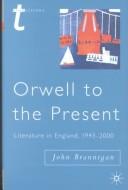
ISBN: 0333696174 0333696166 Year: 2003 Volume: *3 Publisher: Basingstoke Palgrave
Abstract | Keywords | Export | Availability | Bookmark
 Loading...
Loading...Choose an application
- Reference Manager
- EndNote
- RefWorks (Direct export to RefWorks)
This comprehensive critical survey introduces readers to the principal themes and styles of literature in England since 1945. John Brannigan examines the complex nature of the relationship between literature and history, society, and place, and argues that postwar literature is especially concerned with themes of social and cultural change. Covering drama, fiction and poetry, this book combines original readings of a wide range of familiar texts with an exploration of the historical and cultural context of literature since World War II.
820 "19" --- Engelse literatuur--20e eeuw. Periode 1900-1999 --- English literature --- History and criticism. --- Orwell, George, --- Criticism and interpretation. --- England --- Civilization --- Intellectual life --- 820 "19" Engelse literatuur--20e eeuw. Periode 1900-1999 --- History and criticism --- Āravēla, Jorja, --- Blair, Eric Arthur, --- Oruel, G., --- Oravēla, Jyorja, --- Orvel, Džordž, --- Orṿel, G'org', --- Oruell, Dzhordzh, --- Oruel, Dzhordzh, --- Ārvel, Jārji, --- Ōweru, Jōji, --- Ūrvil, Jurj, --- Jārj Ārvil, --- אורוול, גורג, --- אורוול, ג׳ורג׳ --- אורול, ג׳ורג׳, --- اورويل، جورج --- 奥威尔乔治, --- آرول، جارج، --- 20th century --- Orwell, George --- Criticism and interpretation --- 1945 --- -English literature --- Blair, Eric Arthur --- Orwell, Georg --- Orwell, George. --- Āravēla, Jorja --- Oravēla, Jyorja --- Orvel, Džordž --- Orṿel, G'org' --- Oruell, Dzhordzh --- Oruel, Dzhordzh --- Ārvel, Jārji --- Ōweru, Jōji --- Ūrvil, Jurj --- Jārj Ārvil

ISBN: 0701169192 Year: 2003 Publisher: London Chatto & Windus
Abstract | Keywords | Export | Availability | Bookmark
 Loading...
Loading...Choose an application
- Reference Manager
- EndNote
- RefWorks (Direct export to RefWorks)
820 "19" ORWELL, GEORGE --- 820 "19" ORWELL, GEORGE Engelse literatuur--20e eeuw. Periode 1900-1999--ORWELL, GEORGE --- Engelse literatuur--20e eeuw. Periode 1900-1999--ORWELL, GEORGE --- Orwell, George --- Orwell, George. --- Orwell, Georg --- Āravēla, Jorja --- Blair, Eric Arthur --- Oruel, G., --- Oravēla, Jyorja --- Orvel, Džordž --- Orṿel, G'org' --- Oruell, Dzhordzh --- Oruel, Dzhordzh --- Ārvel, Jārji --- Ōweru, Jōji --- Ūrvil, Jurj --- Jārj Ārvil --- אורוול, גורג, --- אורוול, ג׳ורג׳ --- אורול, ג׳ורג׳, --- اورويل، جورج --- 奥威尔乔治, --- آرول، جارج،
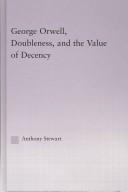
ISBN: 1135924430 1135924449 1138975141 1280076224 0203489527 9780203489529 0415968712 9781135924447 9781138975149 9781280076220 9781135924393 9781135924430 9780415968713 0203606183 Year: 2003 Publisher: New York : Routledge,
Abstract | Keywords | Export | Availability | Bookmark
 Loading...
Loading...Choose an application
- Reference Manager
- EndNote
- RefWorks (Direct export to RefWorks)
In its analysis of Animal Farm, Burmese Days, Keep the Aspidistra Flying and Nineteen Eighty-Four, this book argues that George Orwell's fiction and non-fiction weigh the benefits and costs of a doubled perspective.
Difference (Psychology) in literature. --- Conduct of life in literature. --- Ethics in literature. --- Orwell, George, --- Orwell, George. --- Orwell, George --- Orwell, Georg --- Āravēla, Jorja --- Blair, Eric Arthur --- Oruel, G., --- Oravēla, Jyorja --- Orvel, Džordž --- Orṿel, G'org' --- Oruell, Dzhordzh --- Oruel, Dzhordzh --- Ārvel, Jārji --- Ōweru, Jōji --- Ūrvil, Jurj --- Jārj Ārvil --- אורוול, גורג, --- אורוול, ג׳ורג׳ --- אורול, ג׳ורג׳, --- اورويل، جورج --- 奥威尔乔治, --- آرول، جارج، --- Criticism and interpretation. --- Knowledge --- Psychology. --- Ethics.

ISBN: 0773526226 9786612861550 1282861557 0773571531 9780773571532 9781282861558 9780773526228 661286155X Year: 2003 Publisher: Montreal [Que.] McGill-Queen's University Press
Abstract | Keywords | Export | Availability | Bookmark
 Loading...
Loading...Choose an application
- Reference Manager
- EndNote
- RefWorks (Direct export to RefWorks)
"In Moulmein, in Lower Burma, I was hated by large numbers of people ." So begins one of Orwell's most famous essays. In Orwell: The Road to Airstrip One Ian Slater explains why Orwell was hated in Moulmein and takes us on a fascinating intellectual journey that traces the development of Orwell's political and social criticism. Using a uniquely thematic approach, Slater also examines Orwell's self-criticism and, finally, the hidden and corrosive dangers of state and self-imposed censorship in a security-obsessed world. Slater's tour de force, critically acclaimed by those on both the left and the right, moves from Orwell's schooldays in England and his time as a policeman in Burma, through his years as a struggling poet, dishwasher, tramp in Paris, and tutor, schoolmaster, and bookshop assistant in London, to his critical experiences during the Spanish Civil War. Slater takes us beyond the events of Orwell's life to the bitter satire of the Russian Revolution in Animal Farm and the horrifying terror of Room 101 in 1984, Orwell's final novel, and shows that 1984 is as much a warning about the state of mind we call totalitarianism as it is a prophecy of an actual political state. As the war on terrorism continues and governments demand ever-increasing power over the individual in order to combat terrorism, Orwell: The Road to Airstrip One, reissued during Orwell's centenary, warns us that "he who fights with monsters should be careful lest he thereby become a monster."
Orwell, George --- Criticism and interpretation --- Political and social views --- English literature. --- British literature --- Inklings (Group of writers) --- Nonsense Club (Group of writers) --- Order of the Fancy (Group of writers) --- Orwell, George, --- Orwell, George. --- Orwell, Georg --- Āravēla, Jorja --- Blair, Eric Arthur --- Oruel, G., --- Oravēla, Jyorja --- Orvel, Džordž --- Orṿel, G'org' --- Oruell, Dzhordzh --- Oruel, Dzhordzh --- Ārvel, Jārji --- Ōweru, Jōji --- Ūrvil, Jurj --- Jārj Ārvil --- אורוול, גורג, --- אורוול, ג׳ורג׳ --- אורול, ג׳ורג׳, --- اورويل، جورج --- 奥威尔乔治, --- آرول، جارج، --- Criticism and interpretation. --- Political and social views.
| Listing 1 - 8 of 8 |
Sort by
|

 Search
Search Feedback
Feedback About UniCat
About UniCat  Help
Help News
News